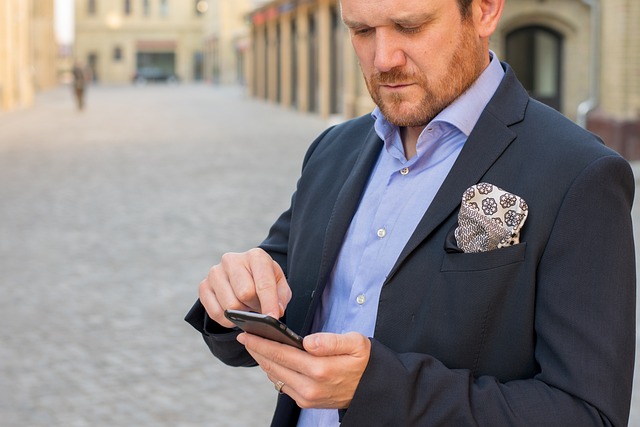By Scott Swanson, Founder & CEO — Bonder
As tools like artificial intelligence (AI) and various forms of automation become increasingly popular, we are seeing several industries change — some for the better and others for the worse. One industry in which automation seems likely to have more of a negative than a positive impact is retail, where automation threatens to undermine the customer experience and forsake the element of connection integral to brick-and-mortar retailers’ success.
Why Connection is Important in The Retail Sector
According to Capital One, the brick-and-mortar retailer sector has experienced year-over-year growth annually since 2020, but the sales growth in these physical storefronts still lags behind e-commerce by approximately 75%. While this may seem to paint a bleak picture for retailers, other statistics in the same study suggest that it is still not time to lose hope, as 72% of U.S. consumers reported still shopping in stores on a weekly basis, and the total amount of sales in U.S. brick-and-mortar retail stores was $7.07 billion.
Amid the COVID-19 pandemic, it became essential for retailers to offer safer, more convenient options like online shopping, order pick-up, and self-checkout. However, while these options were designed to improve customer convenience and help keep retailers alive, they may have been the retail industry signing its own death warrant, as these changes now mean there is precious little separating retailers from online shopping companies like Amazon.
In the past, one could have argued that the main reason why people would shop in a brick-and-mortar setting is to see and feel a product before purchasing it, but even this has become a less integral part of the retail experience with the advent of options like Prime’s “Try Before You Buy” feature. Indeed, the only thing that brick-and-mortar retailers offer that differentiates their experience is the human touch. People want to interact with employees who can see and understand their needs and provide personalized solutions and recommendations to solve these issues.
Still, achieving this human touch can be easier said than done. The current retail landscape is plagued by a labor shortage despite rising wages in the industry, which are intended to attract more workers to the sector. Low unemployment rates and competition with other industries facing their own shortages mean that retailers do not have the workforce they need to maintain their operations — much less provide a superior customer experience.
How Location-based Communication Solves Retail’s Problems
Although technology is partially responsible for this increased distance in the retail industry, another type of technology may be the solution to restoring this personalization. A location-based communication platform has the unique potential to connect retailers with their customers and provide an improved and more personalized customer experience.
From self-checkout lanes to mobile apps, the retail sector has always been quick to adopt new technology. However, unlike those innovations, location-based communication is not a technology born out of necessity — it is born out of a genuine desire to help people and retailers connect with one another more effectively and efficiently.
The benefits of location-based communication will positively impact the retail landscape for businesses and customers alike. With this powerful technology, customers can connect with the location and its employees in ways that were previously impossible. Furthermore, customers can receive help from any employee in the store or be granted access to exclusive discounts or offers using the devices they carry with them every day — all in an instant. On the other side of the transaction, retailers will benefit from a more engaged customer base.
By providing this genuine value and solving legitimate problems, location-based communication has become such a powerful and disruptive technology, even though many other solutions in the retail industry have lost track of what matters most: the customer. While some of these tools may be temporarily useful in relieving common pain points in retail, the truth is that they are little more than a band-aid offering temporary relief. A long-term solution to the struggles of the retail industry will require a return to form of sorts, where the retail sector becomes refocused to provide the customer with the best experience possible.
If brick-and-mortar retailers continue down their current path, solving their problems with technology that further drives them apart from the consumer and leaves them without a value proposition that goes above and beyond what is offered by online shopping platforms, they will eventually become obsolete. But if these platforms begin to understand what makes people want to shop in physical storefronts — a genuine connection — they will be able to recover from some of the problems that plague them.
About the author
 Scott Swanson, an expert in global infrastructure and platform development, leads Bonder, a groundbreaking location-based communication platform revolutionizing how the world connects and communicates. With nearly two decades of Silicon Valley expertise, Swanson champions a fusion of technology and humanity, positioning himself as a trailblazer in revolutionizing technology that improves human experiences.
Scott Swanson, an expert in global infrastructure and platform development, leads Bonder, a groundbreaking location-based communication platform revolutionizing how the world connects and communicates. With nearly two decades of Silicon Valley expertise, Swanson champions a fusion of technology and humanity, positioning himself as a trailblazer in revolutionizing technology that improves human experiences.
Related Articles

7 Employee Benefits That Can Help Your Business Increase Staff Retention
With so many businesses vying for the attention of skilled job candidates, it’s becoming more important to look for ways to make your offerings more appealing by adding unique perks that not every employer does.

How Retailers Can Prepare for the Summer 2025 Shift
Rather than focusing on isolated touchpoints or departmental KPIs, journey management provides a way to understand where the most critical pain points lie and how to resolve them systematically across the business.

Retailers Are Drowning in Data – Journey Management Could Be the Lifeline
Rather than focusing on isolated touchpoints or departmental KPIs, journey management provides a way to understand where the most critical pain points lie and how to resolve them systematically across the business.

How Entertainment is Shaping the Future of Retail Spaces
The traditional retail anchor is being redefined. Large department stores once dominated most shopping centers. Now, concepts like food halls, upscale restaurants, immersive cinema experiences and gaming venues are taking center stage.



 for the latest news and job opportunities in retail tech
for the latest news and job opportunities in retail tech 